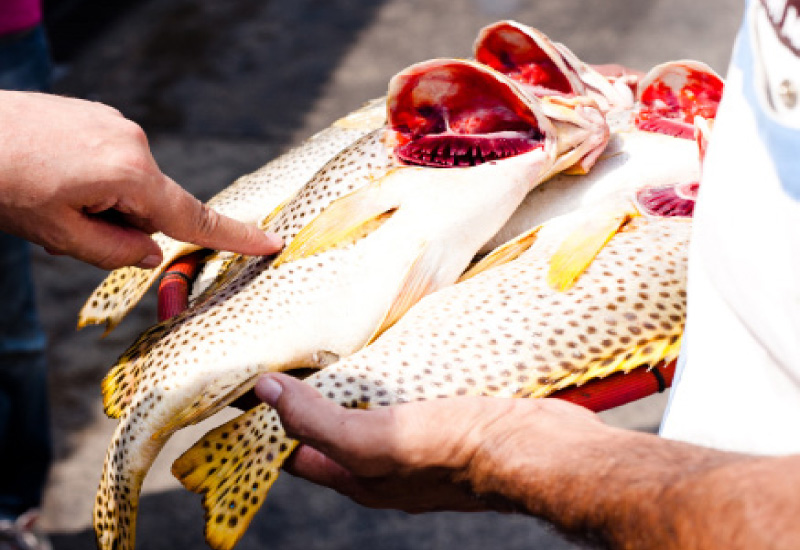With sustainability on the agenda, Caterer Middle East investigates whether the F&B industry in the Middle East has made any progress with combating the issue of overfishing
Everyone is talking about sustainability - and for good reason. It is a global concern, with our planet unable to cope with the load of humanity’s demands on its resources. And when it comes to seafood and fishing, the burden is fast becoming too much to bear.
In the Middle East, certain species of fish are struggling to survive, with critically endangered breeds including hammour (orange-spotted grouper), blue fin tuna and kingfish continuing to be found on restaurant menus.

| Advertisement |
A recent survey by YouGov showed that 66% of the UAE’s residents are estimated to eat hammour on a weekly basis, and according to the Environment Agency Abu Dhabi, overfishing of hammour has placed the species on the endangered list. In recent years, hammour has been over-fished seven times above the level that would allow the species to naturally replenish itself.
In spite of the campaign, consumers are still choosing to eat hammour, restaurants still cater to their demand for it, and the local fish market sells it — and this doesn’t even cover the equally disturbing issue of fishermen trying to pass off other varieties of fish as the orange-spotted grouper at Dubai’s fish market in Deira.
What's on the menu?
Baker & Spice Dubai food consultant Yael Mejia is very passionate about the cause, and is known in the F&B circles for expressing her frustration at the inability of her colleagues to put more effort towards eliminating the issue of overfishing. She asserts that the fish served in Baker & Spice Dubai is “definitely sustainable”.
Mejia continues: “Our whole ethos is about using sustainable produce and limiting our carbon footprint. It would be against our own morals and standards to offer endangered fish and we stopped serving hammour over three years ago — the moment the first news trickled out about it.
We never use farmed fish either as we consider fish farming a dirty and dangerous activity.” However, the restaurant does offer kingfish which is on the “banned” list of the Choose Wisely programme. When asked about this, Mejia defends her menu and says: “Yes we use kingfish from the Arabian sea, not from the Gulf. As far as we know it’s not endangered in the least.”
The St Regis Saadiyat Island Resort, Abu Dhabi chef de cuisine — Turquoiz Kevin Fleming says at his restaurant there is only sustainable fish, which is not an individual outlet policy, but one Starwood follows. “The damage that overfishing can do is irreplaceable and as a company we decided to take a step against it,” he says.
And it’s not just hotel brands, but casual dining outlets which consider the problem as well. London Business Group and London Fish & Chips founder and director Gary Arnold asserts that it is in his brand’s values to work with sustainable fisheries and never employ any kind of endangered fish species into the menu.
“Currently our menu is made up of Atlantic cod (gadus morhua) and haddock (melanogrammus aeglefinus), both of which make up for the best tasting fish and chips and are very much sustainable species.”
Casual dining outlet Seamood founder Mohamed Eid is another restaurateur passionate about the cause. He says emphatically: “All the menu items in my restaurant are sustainable; we follow the Choose Wisely campaign guidelines regarding sustainable and unsustainable fish. For example we have shaari eskhaly (pink ear emperor) instead of shaari (emperor).”
He says farmed fish is normally not a major part of the menu, but in very special cases it does feature with the presence of farmed shrimps and sweet water mullet, when available. Farmed king prawns however, have come into the firing range recently with unethical farming practices — slave labour and unhygienic conditions — revealed in warm-water farms such as in Thailand.
So where the fish comes from is another factor that needs to be considered as cold water prawns for example, are sustainable, but obviously more expensive.
Article continues on next page ...









 Search our database of more than 2,700 industry companies
Search our database of more than 2,700 industry companies









